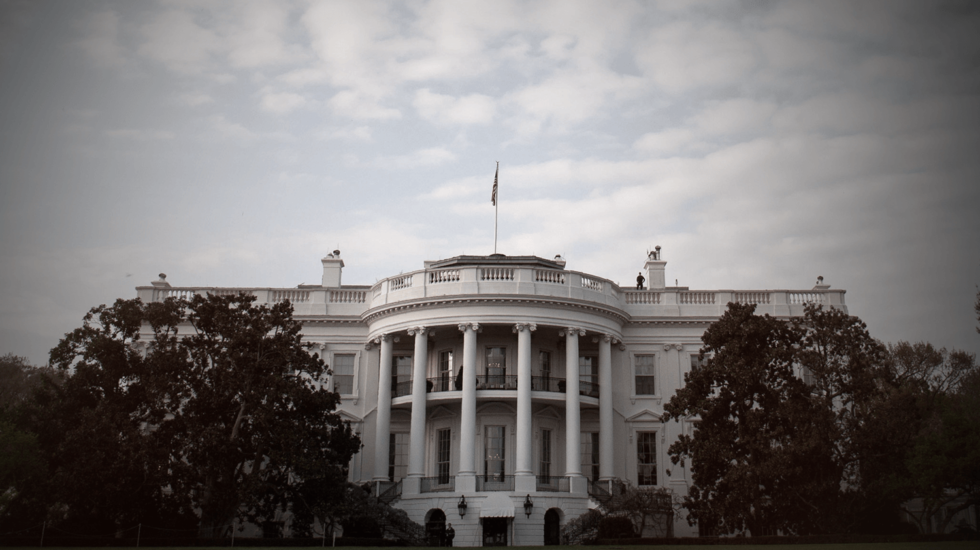National Public Radio’s Morning Edition ran an excellent investigative piece Monday morning about what’s happening to the Consumer Financial Protection Bureau (CFPB) under the direction of Trump appointee Mick Mulvaney. While still a congressman, Mulvaney called the Bureau “a joke” and drafted legislation to do away with it.
The piece broke news, including an internal CFPB memo that NPR was the first to get hold of and which prescribes that the Bureau carry out its work with “humility and moderation.” It also looked into Mulvaney’s decision, just weeks after taking the helm, to drop the CPFB’s lawsuit against Golden Valley, a so-called payday lender, for “unfair, deceptive, and abusive business practices”—including interest rates in excess of 900%.
It’s an important piece of investigative journalism that exposes one of the many ways that the current administration is subverting the rule of law. Listen to it. Read the transcript.
But there’s one additional piece of digging NPR did. It’s almost an aside in the piece, but it deserves closer focus. When Morning Edition approached Mulvaney for an interview, he declined. But his press person said, in an email, that the decision to drop the lawsuit had been made by “professional career staff”—not Mulvaney. Following up with CPFB staffers, NPR learned that was not true: Mulvaney made the decision to drop the suit despite “the entire career enforcement staff” at the Bureau wanting to go ahead with it. As the piece relates, “after repeated questions from NPR, Mulvaney’s press person acknowledged that Mulvaney was, in fact, involved in the decision to drop the lawsuit.”
Wow.
Anyone who’s covered Washington before this past year is, of course, accustomed to government spokespersons delivering spin, “no comments,” non-denial denials, answers to questions other than the ones asked, and even outright stonewalling. If there are numbers involved, benefits will be front-loaded and costs will be moved to the out years. Rose-colored glasses will be distributed for the viewing of all facts. All this is practically a tradition in our nation’s and just about any other nation’s capital.
But outright lies like this one, about straightforward facts—Did he or didn’t he?—used to be the sort of thing that would make news in and of themselves. Time was, not so long ago, when that lie would have headlined the piece. In Trump’s Washington, it gets buried under an ever-growing pile of lies reflexively delivered, apparently as standard operating procedure, by government servants on our payroll. Though this kind of blatant lying has become the norm, there’s grave risk in regarding it as normal.
It started, literally, on Day One—with then-White House Press Secretary Sean Spicer’s transparent whopper that Trump had had “The largest audience to witness an inauguration, period.” And it only seemed to pick up steam from there.
There isn’t nearly enough space here –or time available—to document the many lies told by the president himself. Luckily, we don’t have to. The president is such a prolific prevaricator that an entire journalistic subgenre has sprouted from his fragrant, fertilized fields of fancy: Trump lie-tracking. So here, for example, is a New York Times chart documenting that, in his first 10 months in office, Trump told nearly six times as many “blatant falsehoods” as did Obama during the entire eight years of his presidency. And here’s a Washington Post piece commemorating the president reaching his 2000th lie with 10 days to spare before reaching a year in office. Google around: you’ll find plenty more similar lists and articles.
“But Trump’s a politician,” you may say. Or: “Okay, he lies [a lot] more than other politicians, but he has an agenda by definition. And he’s a special case—a known fabulist from way back.” No, none of that is exculpatory, okay, or normal. But even if you’re able to contort yourself into a logical stance from which it seems to be, consider the way that his lying tone has now infected the whole of the federal government—where countless agencies may be headed by a thin layer of political appointees but are, at heart, staffed by career professionals entrusted with the people’s work: Enforcing regulations and laws; protecting public health; guarding national security…and on and on.
We’re paying for this work. We’re paying for what’s going on in the White House and all the federal office buildings in D.C. and throughout the country. But this virulent culture of lying means we aren’t respected with, for example, the truth about:
–Whether the Trump White House knew that National Security Adviser Michael Flynn was potentially compromised by work for foreign governments.
–Why the Justice Department fired FBI Director James Comey while he was investigating Russian interference in our elections.
–Whether Housing and Urban Development was used to advance the business interests of Secretary Ben Carson’s son.
–When the White House knew about the domestic abuse allegations against Staff Secretary Rob Porter—allegations that, in addition to seeming disqualifying on their face, prevented him from gaining security clearance appropriate to the materials he handled daily.
These are a few ripe fish plucked from a teeming barrel of administration lies. Notably absent here are the convenient and contemptuous (if only the majority party would enforce them as such) lies in the form of “memory lapses” presented in the Congressional testimony of administration officials called to Capitol Hill for all manner of Potemkin accountability, including accouintability for the Trump campaign’s suspicious dealings with Russia. Not even touched upon are the routine, daily lies of Sarah Huckabee Sanders, the White House press secretary.
The lies are self-serving. The lies are cover for crony capitalism and selective enforcement of laws and regulations. Ask yourself whether you’ll be able to tell fact from fiction when the next, inevitable crisis hits. Until then, note them—and know that this sort of lying may now be routine…but it’s far, far from normal.



